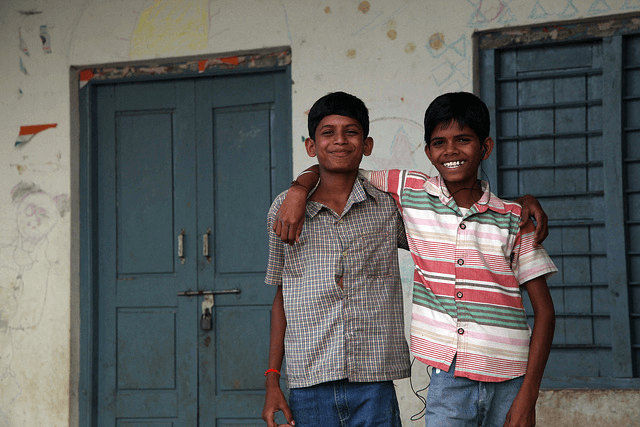As I write this, I'm waiting for our students to return from their weXplore, a five-day excursion that takes students beyond their host city for immersive cultural experiences. For the past two months, we as a school have called Maun, Botswana, our home. It's a small town on the edge of the Okavango Delta and, for many travelers, a doorway into Africa. But Maun is only one perspective, and it...
Read More Having now lived and worked in India for a number of months, it is time to ask myself whether I feel any clearer about the metaphor that is implicit in the phrase “Incredible India.” Certainly, having traveled around certain areas of the country and, perhaps far more importantly, having interacted with some of its many citizens, I have a little more knowledge and understanding than was the case when I arrived. But am I able to explain my comprehension even to myself?
Having now lived and worked in India for a number of months, it is time to ask myself whether I feel any clearer about the metaphor that is implicit in the phrase “Incredible India.” Certainly, having traveled around certain areas of the country and, perhaps far more importantly, having interacted with some of its many citizens, I have a little more knowledge and understanding than was the case when I arrived. But am I able to explain my comprehension even to myself?
India reminds me very much of a poem where the words are easy to read, but in which the meaning very much depends upon your perspective, your mood as well as your motivation. The opening stanza will readily testify to the fact that India is the world’s largest democracy, and yet the subsequent writing will allude to the profound levels of discrimination that are so divisive within the civil society. There exists such a distinction between those who have tremendous affluence and the majority who exist in abject poverty. Opportunity is also reduced according to religion and gender, while, although it is legally eradicated, the caste system still personifies the deep divisions that exist within the country.
Indeed, one is excused from asking whether India really is one country given the autonomy of the regional states, or whether India is a political construct and a manifestation of a hope of what may happen in the future. The very nature of the regionalization is deep rooted in history, and within each region the distinctly different culture and dialects remain as important today as they have ever. The numerous dialects personify the ethnic groups and further alienate the notion of one country, one language and one destiny together. Evidence of this very fact is readily available in the state of Andhra Pradesh, where a fervent politic struggle is taking place to establish a new state for the Telugu speakers.
The next stanza of the poem focuses on the economy. Figures indicate that although there is a slight slowing in year-over-year growth, India is set to overtake Japan and the European nations within the span of one generation. Such unprecedented growth maintains a space program; with an unmanned spacecraft currently racing towards the planet Mars. Yet the division between the few who have the overwhelming majority and those who live in abject poverty remains largely unchanged. We can witness the thousands of farmers who are unable to manage the debt that they have with the bank, and are therefore unable to plant for the following crop and choose suicide as the only viable option available to them. Or there are the many who exist begging or scratching a daily living by searching through garbage, cleaning toilets or other tasks that are socially unacceptable.
The poem concludes with the strident noises of politics; the chatter of promises, the litany of accusations amid the clink of coin changing hands. This betrayal is copied in the world of business, where corruption is endemic and percolates down through every strata of daily life such that everybody is aware of what one has to do in order to get along: pay the appropriate bribe. Such is the political climate, and, therefore, it is no wonder that there is such a level of distrust abroad that nothing can unify the country in the face of such a massive problem — save perhaps a cricket test match or an issue with Pakistan.
Yet as an avid reader of poetry, I am well aware that my view of a poem is subjective, and, accordingly, I am prepared to accept that my view of India is equally subjective. For I do not wish to be venal or negative, as India offers so much to the traveler in terms of cuisine, arts, history, culture, travel, and such an amazing range of geography. But it must be stated, that the people are the country’s greatest asset. Many people in India live in such congestion that I balk at the prospect. But they know how to smile, how to greet a stranger and the value of being friendly. So what I have managed to discern to this moment is really not that the economy is powerful, nor that the democratic base is perhaps predicated on a large number of people who are disenfranchised from voting, but rather about the everyday men and women and the “Incredible India” that they portray to the wanderer; where the head wobble and the ready smile bespeaks a millennium of courtesy and quiet resilience.
